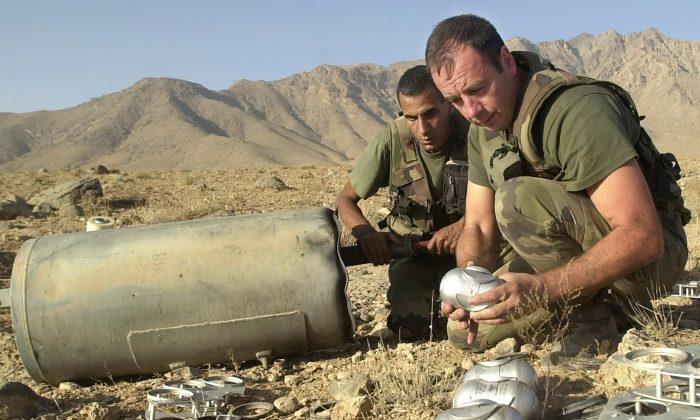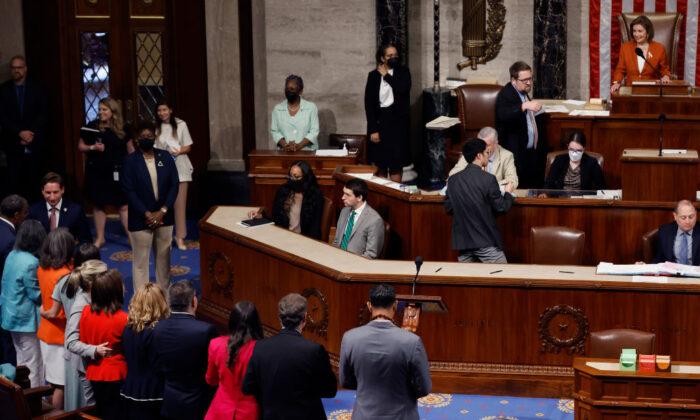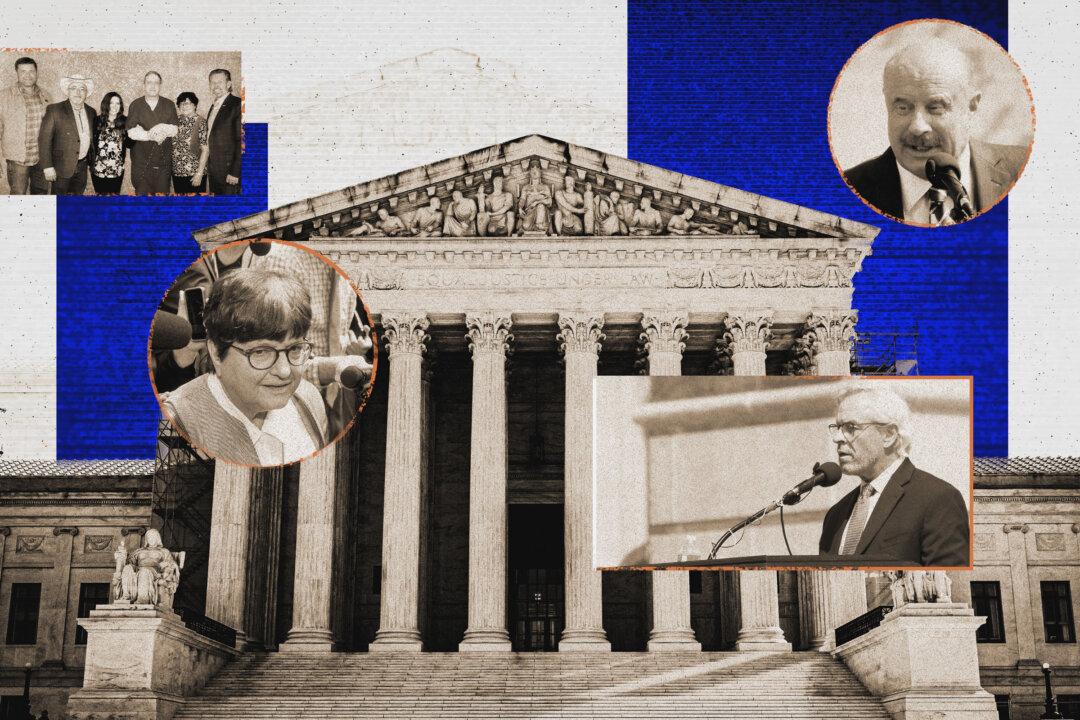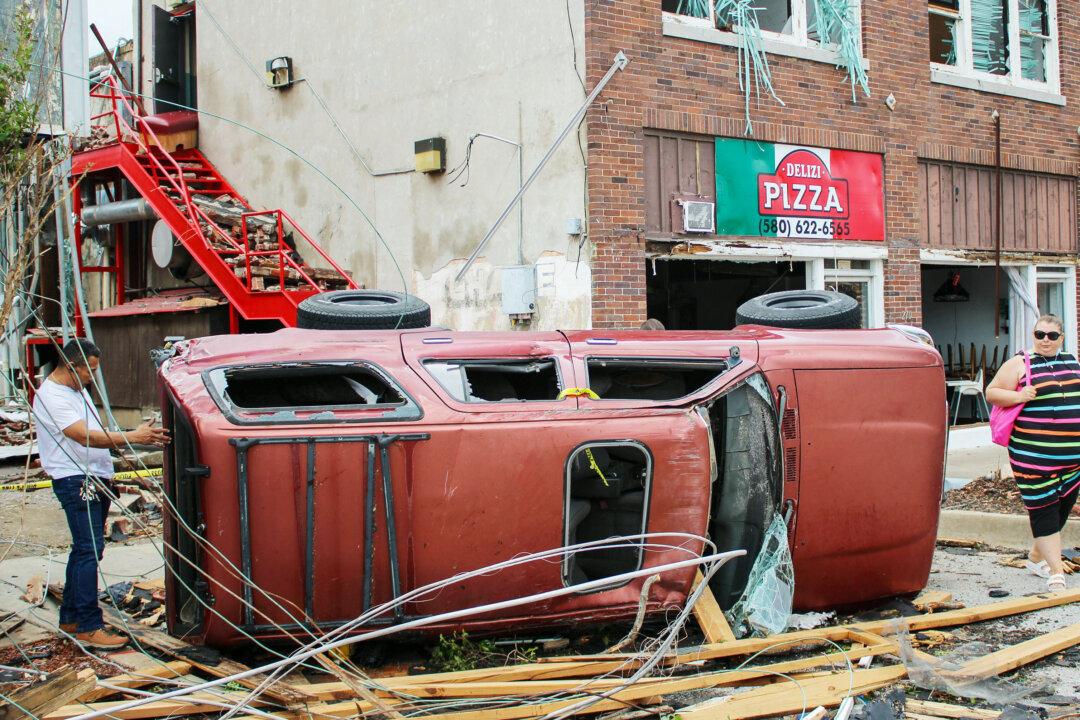The United States will send so-called “cluster munitions” to Ukraine in its ongoing fight to drive Russian forces out of the country.
Speaking from the White House on July 7, national security adviser Jake Sullivan said President Joe Biden deferred the decision long as possible.
After consulting international leaders and reviewing the situation on the ground, he decided to sign the order to provide Ukrainian forces with the weapons they requested.
“We continue to stand with the people of Ukraine as they defend their sovereignty, their freedom, and their democracy,” he said.
After they are fired, cluster munitions open in midair and release small bombs (bomblets) over a wide area to strike several targets simultaneously. They can be delivered by planes, artillery, and missiles.
Human Rights Watch, and other humanitarian organizations, oppose the devices because some of the bomblets don’t explode when they are deployed. This unexploded ordinance presents a hazard to civilians, especially children.
Mr. Sullivan said it’s estimated that Russian forces have dispersed “tens of millions” of the bomblets in their attempt to take over Ukraine. He said that the “dud rate,” the number of bomblets that fail to explode, is between 30 and 40 percent.
Considering the danger already present from Russian bomblets, The decision was made that the Ukrainians have the right to defend their land with whatever weapons they deem necessary, Mr. Sullivan said.
“That doesn’t make it an easy decision,” He said.
Colin Kahl, Under Secretary of Defense for Policy, said the U.S. munitions have a dud rate of 2.5 percent.
Mr. Kahl said the United States would send standard 105-millimeter artillery shells and Dual-Purpose Improved Conventional Munitions (DPICM).
DPICM are cluster munitions fired from artillery.
Proponents of banning cluster munitions say that countless civilians, including children, have been injured and killed by unexploded bomblets.
Mr. Sullivan said the danger to Ukrainian civilians will grow if nothing is done.
More than 100 countries, including several NATO members, are part of the Convention on Cluster Munitions (CCM).
These countries signed an agreement in Oslo, Norway, on Dec. 3, 2008.
According to the CCM website, “The Convention on Cluster Munitions is an international treaty of more than 100 states. The convention prohibits all use, production, transfer, and stockpiling of cluster munitions.”
The United States and Russia are not party to the CCM.
Mr. Sullivan said that several countries expressed support for the plan.
He claimed that even though CCM members, like Germany, have expressed dismay at the situation, they have not explicitly condemned the transfer.
He said it’s clear that Russia is at fault and that the Ukrainians are simply trying to defend themselves.
“There is also a massive risk of civilian harm if Russian troops and tanks roll over Ukrainian positions and take more territory,” he said.
Mr. Kahl said the munitions to be sent are newer and more reliable than those used in previous conflicts.
He said the failure rate for the new munitions is down to 2.5 percent.
He added that Ukrainians would have to deal with the cluster munitions even if the United States did nothing.
Cluster Munitions Already an Issue
“This is an issue the Ukrainians will have to grapple with regardless,” Mr. Kahl said.The Ukrainians have agreed to limit the use of the munitions to sparsely populated areas to record where they are used so unexploded bomblets can be retrieved after the war.
United States law prohibits transferring cluster munitions with a dud rate greater than one percent. However, Kahl said the president has the legal authority to waive that requirement.
Mr. Biden decided to green-light the deal after talking with Congressional leaders and officials from other countries.
“We did not make a unilateral decision; we are not breaking the law,” Mr. Kahl said.
Ultimately, Mr. Sullivan said the decision will enable the Ukrainians to continue their war effort with the ordinance they need.
He said that both sides have relied heavily on artillery.
So, the United States and others who supply Ukraine must ramp up their production of artillery shells.
Sending the DPICM will “build a bridge” between the Ukrainian’s current and future needs.
Mr. Sullivan stopped short of saying there was a shortage of artillery shells.
“We need to build a bridge from where we are today to when we have enough monthly production,” he said.
According to Mr. Kahl, this move will do more to protect Ukrainians in the long run.
“The worst thing for civilians in Ukraine is for Russia to win the war,” Mr. Kahl said.





